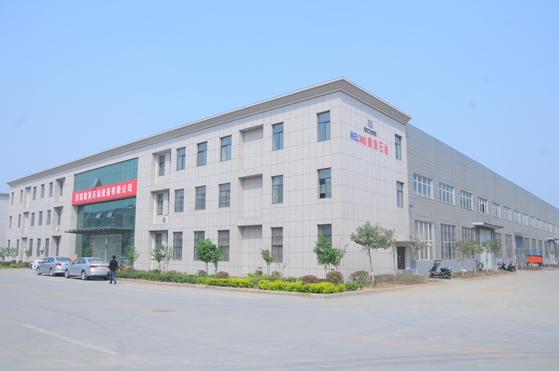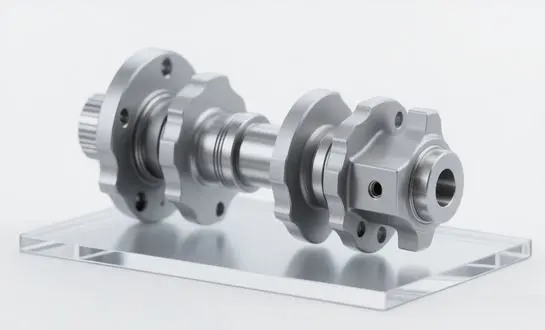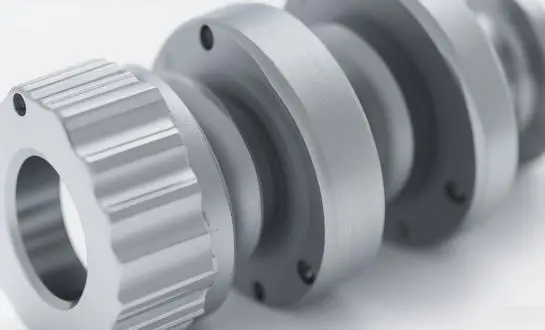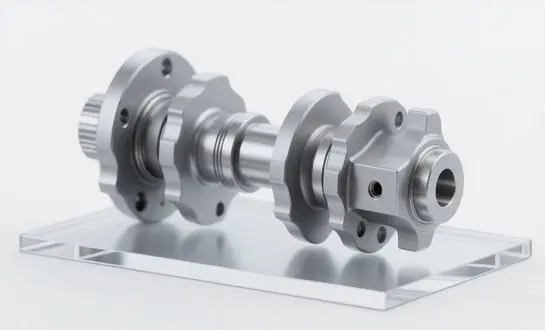Work Rolls vs. Backup Rolls: Key Differences Explained
When it comes to processing operations, two essential sorts of rolls stand out: work rolls and reinforcement rolls. Each plays a particular part in the metal shaping handle, and understanding their contrasts is vital for optimizing generation productivity and item quality.
Work Rolls: The Front Line of Metal Forming
Work rolls are the coordinate contact point between the processing apparatus and the metal being handled. These milling rolls are planned to apply exact weight and forming strengths to the workpiece. Key characteristics of work rolls include:
- Direct contact with the metal being processed
- Typically smaller in diameter compared to backup rolls
- Made from materials that can withstand high temperatures and wear
- Require frequent replacement due to wear and tear
- Surface finish and precision directly impact the quality of the final product
Work rolls are the workhorses of the processing handle, mindful for the real forming and shaping of the metal. Their plan and fabric composition are custom-made to the particular metal being prepared and the craved outcome.
Backup Rolls: The Unsung Support System
While not in coordinate contact with the metal being prepared, reinforcement rolls are basic for keeping up the keenness of the processing handle. These bigger rolls give back to the work rolls, guaranteeing reliable weight and avoiding diversion. Key highlights of reinforcement rolls incorporate:
- Larger diameter compared to work rolls
- Not in direct contact with the processed metal
- Made from durable materials to withstand high loads
- Longer lifespan compared to work rolls
- Critical for maintaining roll stack stability and preventing work roll bending
The synergy between work rolls and backup rolls is crucial for achieving precise and consistent results in metal forming operations. While work rolls shape the metal, backup rolls ensure that this shaping occurs uniformly across the entire width of the material.
How Material Choice Impacts Milling Roll Performance?
The selection of materials for milling rolls is a critical factor that significantly influences their performance, durability, and the quality of the finished product. Different materials offer varying properties that cater to specific milling requirements and challenges.
High-Chrome Steel: Balancing Hardness and Toughness
High-chrome steel is a popular choice for milling rolls, particularly in applications that require a balance between hardness and toughness. These rolls are characterized by:
- Excellent wear resistance
- Good thermal stability
- Resistance to oxidation and corrosion
- Ability to maintain hardness at elevated temperatures
High-chrome steel rolls are often used in hot rolling mills where they can withstand the high temperatures and stresses involved in processing hot metal sheets.
Carbide-Enhanced Rolls: Pushing the Boundaries of Hardness
For applications that demand extreme hardness and wear resistance, carbide-enhanced rolls are the go-to choice. These rolls feature:
- Exceptional hardness and wear resistance
- Ability to maintain sharp edges and precise geometries
- Suitability for high-speed milling operations
- Longer service life compared to traditional steel rolls
Carbide-enhanced rolls are particularly valuable in cold rolling processes where maintaining tight tolerances and surface finishes is crucial.
Composite Rolls: The Best of Both Worlds
Composite rolls speak to an imaginative approach to milling roll plan, combining distinctive materials to use their individual qualities. These rolls regularly feature:
- A hard, wear-resistant outer shell
- A tough, impact-resistant core
- Customizable properties to suit specific applications
- Improved thermal management capabilities
Composite rolls offer a one of a kind adjust of properties that can be custom-made to particular processing necessities, making them progressively prevalent in progressed fabricating settings.
The choice of fabric for milling rolls is not a one-size-fits-all choice. Variables such as the sort of metal being prepared, the wanted surface wrap up, generation speed, and natural conditions all play a part in deciding the ideal fabric for a given application. By carefully considering these variables and selecting the fitting fabric, producers can altogether improve the execution and life span of their processing operations.
Which Industries Benefit Most from Specialized Milling Rolls?
Specialized milling rolls have become indispensable tools across various industries, each benefiting from tailored solutions that address specific manufacturing challenges. Let's explore some of the key industries that rely heavily on specialized the products to maintain their competitive edge and product quality.
Steel Industry: Precision at Scale
The steel industry is perhaps the most prominent beneficiary of specialized milling rolls. In this sector, rolls are used for:
- Hot rolling of steel sheets and plates
- Cold rolling for precision thickness control
- Texture imparting for specific surface finishes
- Profile rolling for structural steel components
Specialized rolls in the steel industry are designed to withstand extreme temperatures, high pressures, and continuous operation, ensuring consistent quality in high-volume production environments.
Aluminum Manufacturing: Lightweight Precision
The aluminum industry relies on specialized milling rolls to produce everything from beverage cans to aerospace components. Key applications include:
- Foil rolling for packaging applications
- Sheet rolling for automotive and construction uses
- Profile extrusion for architectural components
- Precision rolling for electronics industry components
The products used in aluminum processing are often designed with specific surface treatments to prevent aluminum pick-up and ensure smooth, defect-free surfaces.
Copper and Brass: Conductivity and Corrosion Resistance
The copper and brass industry utilizes specialized milling rolls for producing a wide range of products, including:
- Electrical conductors and components
- Plumbing fixtures and fittings
- Decorative architectural elements
- Musical instruments
Rolls used in this industry often feature specialized coatings or surface treatments to prevent contamination and maintain the purity of the copper or brass being processed.
Textile Industry: Beyond Metals
While not typically associated with metal processing, the textile industry also benefits from specialized milling rolls. These are used for:
- Calendering of fabrics for smoothness and sheen
- Embossing patterns onto textiles
- Laminating multiple layers of fabric
- Applying finishes and coatings to textiles
Textile milling rolls often require unique surface characteristics to handle delicate fabrics without damage while still achieving the desired processing effects.
Each of these businesses depends on the accuracy, solidness, and specialized characteristics of the items to deliver high-quality items productively. As fabricating innovations proceed to development, the advancement of indeed more specialized milling rolls is likely to open up modern conceivable outcomes for item advancement and prepare optimization over these and other industries.
Conclusion
In conclusion, the world of milling rolls is tremendous and shifted, with each sort and fabric choice advertising special benefits for particular mechanical applications. From the strong work rolls that shape metal with exactness to the steady reinforcement rolls that guarantee solidness, and from high-chrome steel rolls that withstand extraordinary conditions to composite rolls that offer custom-made properties, the choices are as differing as the businesses they serve. As we've investigated, divisions extending from steel and aluminum fabricating to copper handling and indeed material generation all advantage from specialized milling rolls outlined to meet their interesting challenges.
Understanding the subtleties of distinctive milling roll sorts and materials is vital for optimizing mechanical forms, improving item quality, and keeping up a competitive edge in today's fast-paced fabricating scene. As innovation proceeds to advance, so as well will the capabilities and applications of the items, opening up modern conceivable outcomes for advancement and proficiency over different businesses.
For those seeking to delve deeper into the world of milling rolls or explore how these critical components can enhance their specific manufacturing processes, expert guidance is invaluable. To learn more about cutting-edge milling roll solutions and how they can be tailored to your industry's needs, don't hesitate to reach out to our team of specialists at oiltools15@welongpost.com. Our experts at Welong are ready to provide insights and solutions that can help elevate your manufacturing capabilities to new heights.





